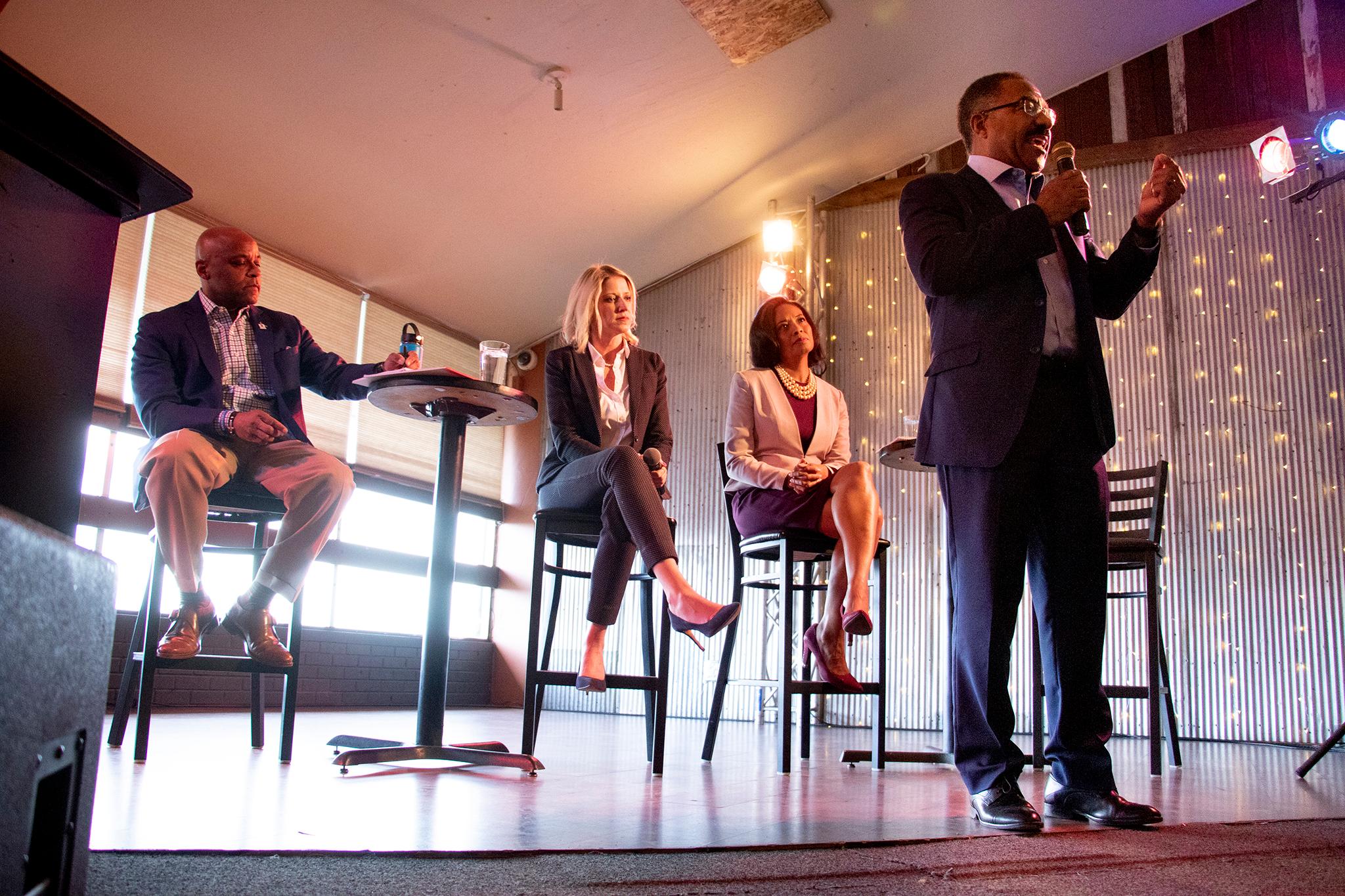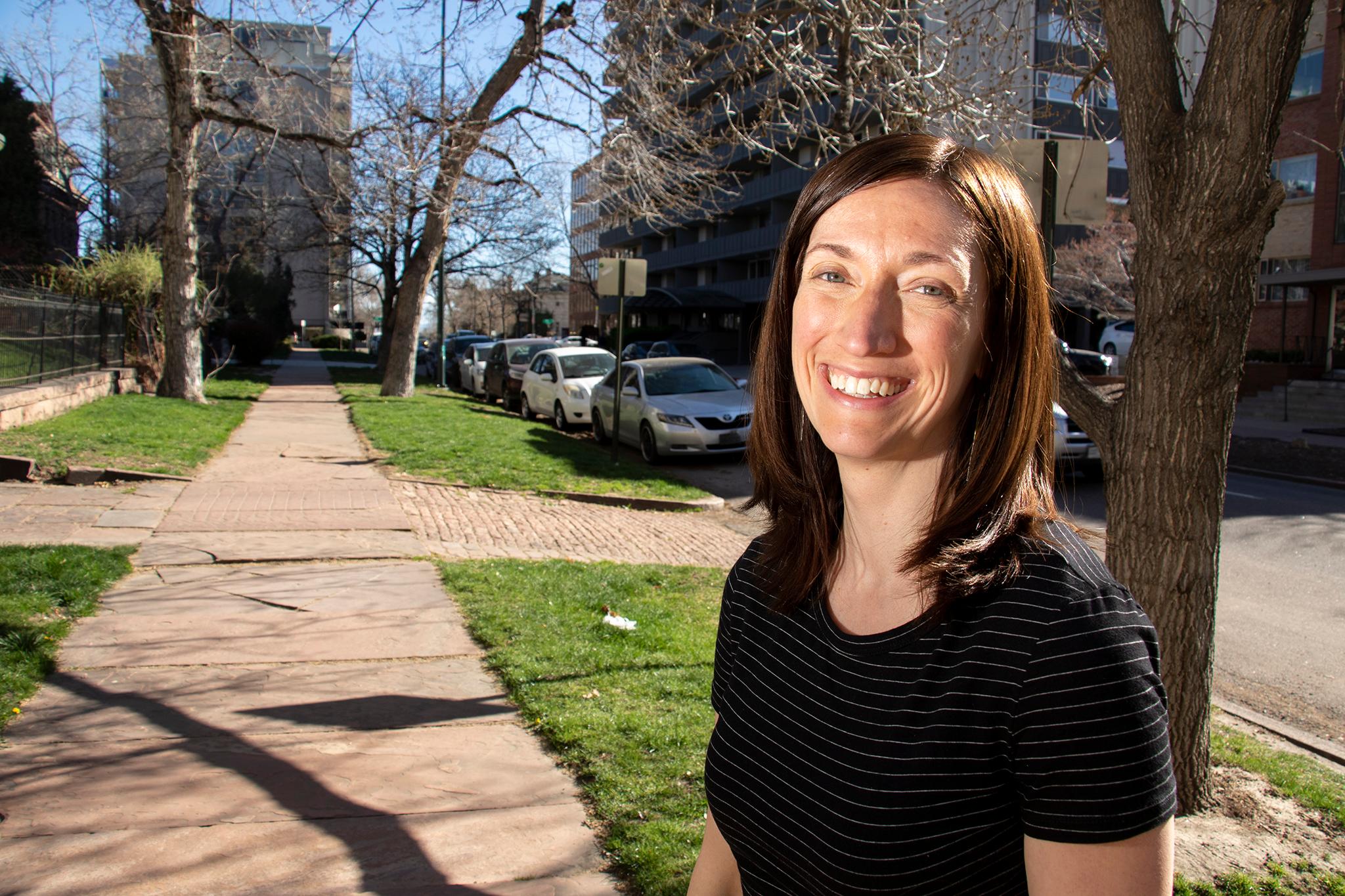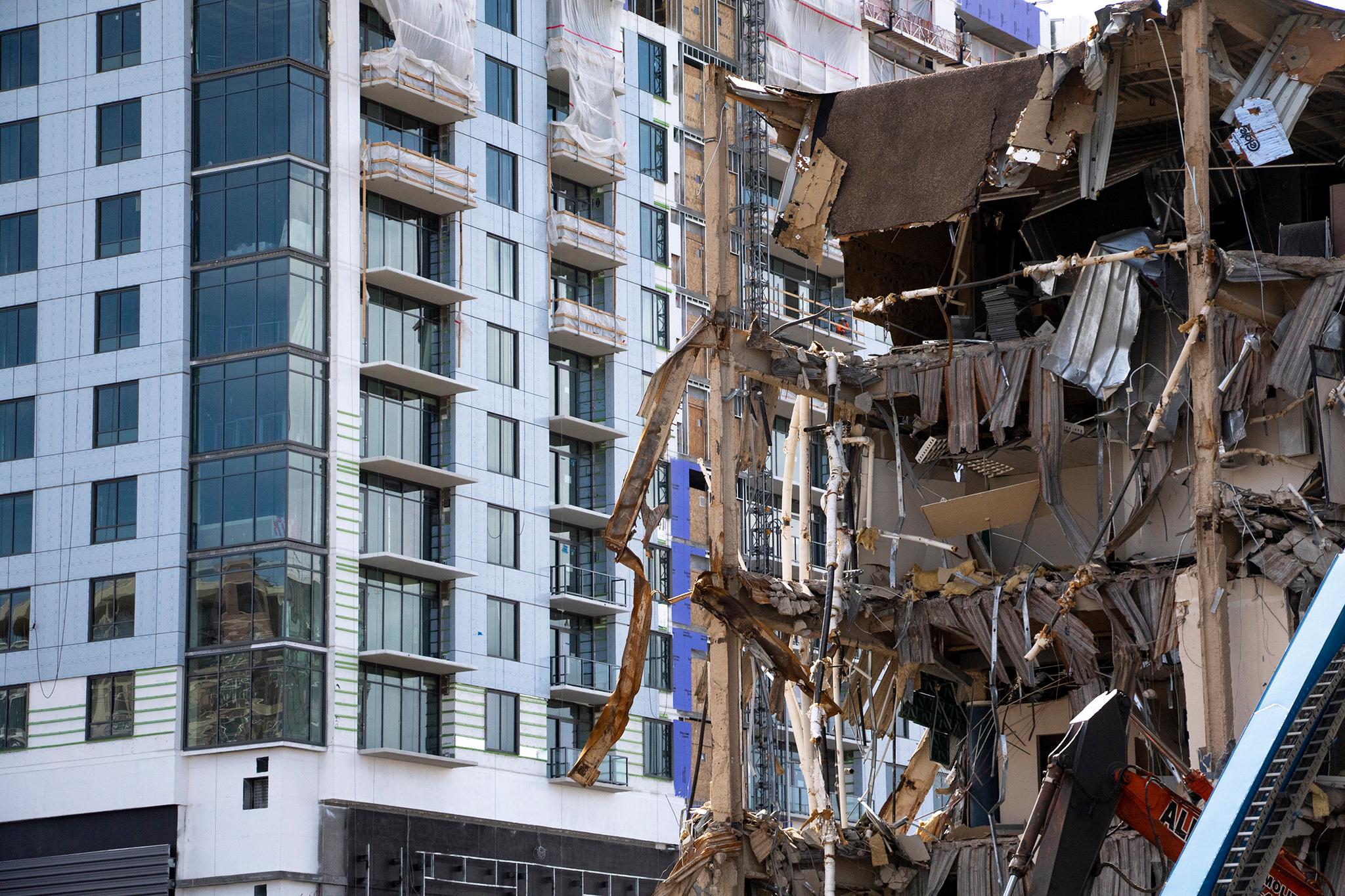After three years in the making, Denver's 20-year plan for growth is up for a vote by the City Council on Monday, two weeks before the election.
Some candidates running for mayor and council and some neighborhood groups want elected officials to delay passing Blueprint Denver, a set of policy recommendations to shape development and transportation. The contingent also wants to press pause on the Comprehensive Plan, a broader-stroke guide for growth.
Elected officials should not decide the fate of such significant documents weeks away from a possible changing of the guard on council and in the mayor's office, they say.
Mayor Michael Hancock's administration launched the plan in 2016 and says it made about 25,000 contacts with Denverites throughout the process. A citizen-led, volunteer task force built Blueprint with city staffers and consultants over 20 three-hour sessions, guided by feedback from public meetings and surveys. The result is 300 pages of research, recommendations and pictures meant to inform policies on land use, transportation, design and growth.
The document is packed with proposals, but here are some big ones:
- Allow more density in traditionally single-family neighborhoods, like duplexes, four-plexes and townhouses, to boost the "missing middle" housing stock
- Concentrate density around frequent transit; new, big density changes should coincide with new, big transit investments
- Create new design quality standards; create a board that reviews building designs in high-profile areas like downtown
- Design streets to put pedestrians first and make biking and busing convenient
- Track how public investment negatively affects low-income and minority residents
Blueprint is not just a city-altering plan. It's a political volleyball.
Candidates for mayor and City Council have a range of complaints about Blueprint, and they're aiming them at Hancock.
Jamie Giellis doesn't like the idea of spreading density "throughout the city" by re-zoning properties, she told Denverite, and claimed there's "a lot of gray in the interpretation of what the plan will actually do" among residents she's spoken with on the campaign trail.
Mayoral hopeful Penfield Tate has said he doesn't want new politicians carrying out the wishes of old ones. Lisa Calderón wants the plan to have more concrete benchmarks.
"I think that what we've seen from this administration is that it continues to put out plans, spend tens of thousands of dollars, and yet we see very little results," Calderón said. "So whoever next takes the helm of our city will be stuck with an incomplete plan that is in need of further study. Quite honestly, I think the skepticism that you are seeing is a lack of trust in the administration because of aspirational goals that don't have teeth to them."

All of Hancock's challengers favor the delay and say there was not enough public outreach done.
"What if the mayor was replaced and all the council was replaced?" Hancock said in an interview last month. "We serve until July 15th. It's our responsibility to pass this. It happened under our watch, we're ultimately responsible."
Is this a "kill strategy"?
Affordable housing developer and co-chair of the Blueprint task force Kimball Crangle says the plan has been politicized despite standing for a lot of the things candidates say they care about -- social equity.
"Personally I don't want to see it delayed," Crangle said. "I think it is a mistake because I think it is all political and this council has been the one guiding the document for the last three years. I think it's a kill strategy."
Policies aimed at helping poorer residents and minorities disadvantaged by Denver's growth are laced throughout the document. Public feedback pointed to "equity" as a primary concern, so before drafting Blueprint, the task force and the city's planning department attended a three-day training on institutional racism and how well-meaning public policy can unintentionally hurt society's most burdened.
The document's call for inclusivity is the most important part, Denver's citywide planning manager Sarah Showalter said.
"Overall it's about the focus on equity and building a more inclusive city, calling for the city to be more conscious and more active in how large re-zonings contribute to involuntary displacement," Showlater said.

Denver's largest neighborhood organization favors a delay, but it's not that simple.
The Inter-Neighborhood Cooperation has about 85 neighborhood organizations under its umbrella. In February, INC voted to take an official stance in favor of stalling the vote.
"If we're gonna have a new administration after May 7, it would make the most sense that they be the ones doing the implementation," George Mayl, INC's president, said in an interview.
Not everyone at INC is disgruntled with the city's plan. Ean Tafoya, who co-chairs the group's Zoning and Planning Committee, wanted language included that encouraged rent control in case the state legislature legalized the practice, and a stronger commitment to have affordable housing in every community.
But he was also pleased, he told Denverite, that the administration listened to his concerns about equity, water and soil issues, and changed the draft accordingly. As an INC member, he officially supports delaying the vote.
Joel Noble chairs the INC Transportation Committee and co-chaired the Blueprint team along with Crangle. After he submitted concerns based on INC's transportation platform, he says Blueprint now contains everything the committee asked for -- including assurances that major density is built with major transit investments, not beforehand, and bolder language about prioritizing the safety of vulnerable street users like pedestrians and bicyclists.
INC passed the measure 26 to four with four abstentions. That means 34 or fewer neighborhoods, or about 40 percent of the organization, voted. (Each neighborhood gets two delegates/votes.)
"The people that vote are the ones that get their voices heard," Mayl said. "It's just like in any election. That's how democracy works."

In an ideal world, that's how city planning would work, too -- everyone gets a voice. The Hancock administration interacted with thousands of locals on the project, but that obviously did not guarantee buy-in from the masses.
"We feel very strongly that we've done a good job on various platforms, various methods of engagement," said Alexandra Foster, spokeswoman for the city's planning department. "There's always more people that you could've reached out to, there's always more meetings that could've been held."
More community involvement is one reason the vote is falling so close to an election.
Blueprint was scheduled to take 18 months to finalize, but it took twice that. One reason? INC wanted more time to review the draft, so the city added three months. Another reason, according to Crangle, is because the team pressed reset to give the document a sharper equity lens. The equity focus came only after criticism, according to Tafoya, who also sat on the task force.
"It's unfortunate that the timing is this close to the election," Crangle said. "It's only this close to the election because we have extended the review time.
"The risk of delay of Blueprint Denver means we don't get to start implementing the social equity and racial equity policies that this plan recommends, including ones that in my personal opinion are long overdue in Denver."

Hancock is quick to remind people that an outgoing city council passed the original Blueprint plan in 2002 that has shaped growth for the last 17 years. That span includes an economic boom and flush city budgets. It also includes, of course, growth that's partially responsible for the gentrification and displacement that everyone says they're trying to curb.













